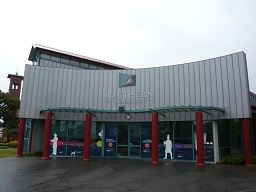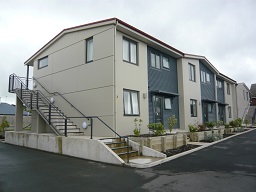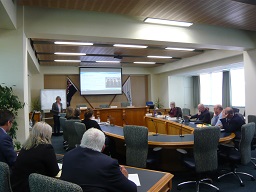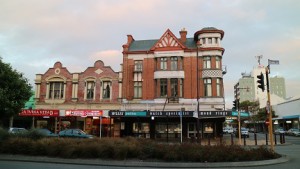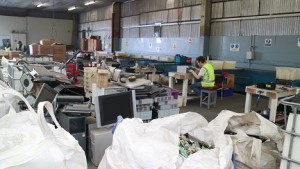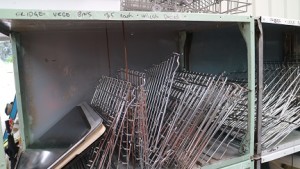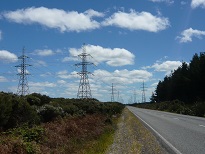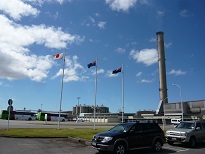From 28 November to 2 December, Assistant Director Tomohiro Koike visited the Invercargill City Council in New Zealand for his internship.
During his internship, he met with Chief Executive Officer (CEO) Richard King and several Directors, gaining insights from them about a host of topics including community service, tourism policy and industrial promotion.
Invercargill city is situated at the southern end of the New Zealand South Island and has a population of 52,000 people and is a sister city of Kumagaya City in Saitama Prefecture. Tomohiro noted the strong sense of connection Invercargill has with Japan as both cities share an active high school exchange programme through their sister schools.
Tomohiro learnt a lot about historic buildings in Invercargill City and their management through his internship. Historic buildings (Heritage Buildings) are often found in cities and serve as popular tourist attractions. Many citizens see the value in such historical sites and believe that it is desirable to preserve them. However, the Building (Earthquake-prone Buildings) Act in New Zealand was amended in May 2016 and it became necessary to fix reinforcement and reinstatement in buildings corresponding to each category of earthquake risk as described in the Act. Because the owner of the building will shoulder the cost of reinforcing and restoring heritage buildings, Tomohiro understood that it is difficult to coordinate with the owners who have to rebuild and reinforce their property and want their expenses subsidised.
Tomohiro also managed to learn more about solid waste disposal and recycling as it is one of the basic duties of the municipalities in New Zealand. Solid waste disposal is classified into two types: general waste and recyclables. Each households’ bins are collected once a week, and recyclable items are collected twice a month. Unlike Japan, general waste is not incinerated, landfill processing is done, and waste that can be recycled is separated and recycled at the recycling separation centre and exported or reused as resources.
Tomohiro also noted that there are shops that collect and sell unused items. Such stores are unique and sell a variety of random everyday appliances such as remote controls for television sets, the front baskets of bicycles, clothes, electric appliances and much more.
Aluminium smelting is the largest industry in Invercargill. New Zealand Aluminium Smelter (NZAS), a subsidiary of Australian companies and Japanese companies (Sumitomo Chemicals) is producing aluminium products near ports in the suburbs of Invercargill. Raw bauxite is imported from Australia. The production of aluminium requires a lot of electricity, so the electricity is covered by using a dedicated transmission line from a neighbouring hydropower plant. The aluminium product is very high quality and is mostly used for airplanes. 90% of the aluminium products are exported, 70% of the exports are to Japan.
Tomohiro notes that his time in Invercargill was an unforgettable and awesome experience. He sincerely appreciates the kindness and effort of the CEO, the Directors and all the staff in Invercargill city council who helped arrange and facilitate his internship.

